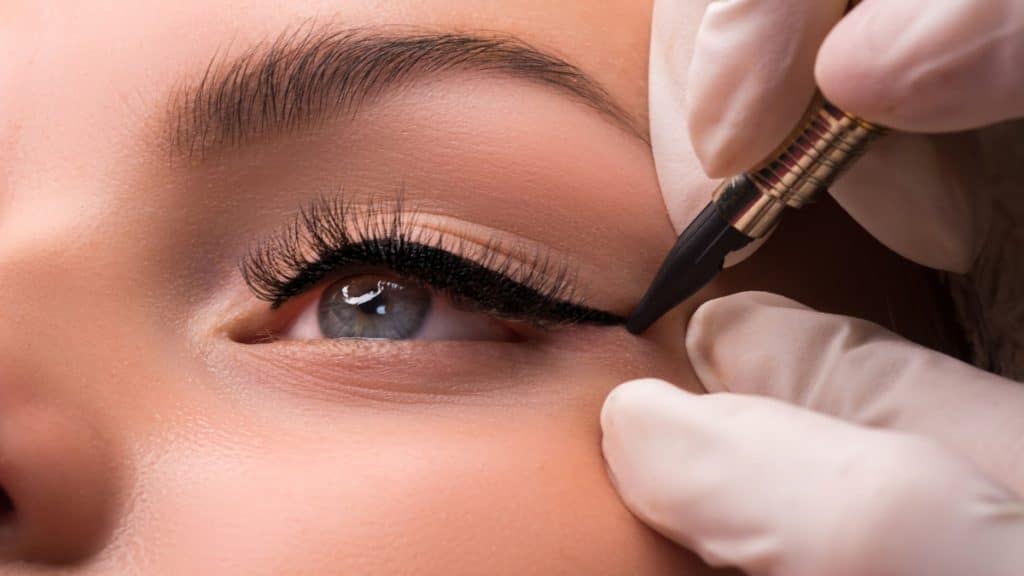In the burgeoning field of beauty and personal care, the demand for skilled cosmetic tattoo artists is rapidly growing. A great cosmetic tattoo course is essential for those looking to enter this field, as it lays the foundation for a successful career. This article delves into the various aspects that contribute to the effectiveness of a cosmetic tattoo course, offering prospective students the knowledge needed to choose a program that will truly enhance their skills and professional prospects.
Comprehensive Curriculum: The Heart of the Course
Foundational Knowledge
A well-rounded curriculum is essential in a cosmetic tattoo course. It should cover all necessary aspects of the practice, not only teaching the technique but also understanding the theory behind it.
- Anatomy and Skin Health: Knowledge of skin types and conditions to ensure proper application.
- Colour Theory: Understanding pigment selection and colour matching for different skin tones.
- Hygiene and Safety: Training in proper sterilisation and safety practices to prevent infections.
Advanced Techniques
In addition to basic skills, the best courses offer training in advanced techniques to help students stand out in the competitive market.
- Microblading: Techniques for creating realistic eyebrow tattoos.
- Scalp Micropigmentation: Methods for tattooing the scalp to simulate hair.
- Lip Tinting and Eyeliner: Detailed work that requires precise hand control.
Expert Instructors and Mentorship
Learn from Experienced Professionals
The quality of instructors plays a critical role in the learning process. Great courses who led by experienced professionals who can provide real-world insights and advanced techniques.
- Industry Experience: Instructors should have a substantial portfolio and years of experience.
- Teaching Ability: Effective communication and the skill to convey complex concepts clearly and concisely.
Ongoing Support
The learning should not end when the course does. Look for programs that offer ongoing mentorship and support.
- Post-Course Mentorship: Opportunities for continued learning and feedback after course completion.
- Networking Opportunities: Connections with industry professionals and potential employers.
State-of-the-Art Facilities and Equipment
Modern Tools and Technologies
A great cosmetic tattoo course provides access to the latest tools and technology in the industry. This exposure is crucial for students to become proficient with current industry standards.
- High-Quality Inks and Machines: Use of top-of-the-line products that professionals use.
- Realistic Practice Materials: Including synthetic skins and eventually, the opportunity to work on live models under supervision.
Certification and Accreditation
Recognised Qualifications
Accreditation from a recognised body reassures students that a cosmetic tattoo course meets high educational and ethical standards.
- Accreditation Status: Ensure the program is recognised by relevant beauty and health authorities.
- Certification Offered: Completing the course should provide a recognised certification that aids in professional development and client trust.
Practical Experience
Firsthand Training
Theoretical knowledge complemented by substantial practical experience. A great course should provide ample firsthand training.
- Live Model Practice: Direct application of skills on live models.
- Variety of Techniques: Exposure to a broad range of styles and methods in cosmetic tattooing.
Course Flexibility and Student-Centered Learning
Adapting to Diverse Needs
A course must also be flexible and adaptable to meet the needs of a diverse student body.
- Flexible Scheduling: Offering classes that fit different schedules, including evenings and weekends.
- Tailored Instruction: Courses that adjust their focus based on student progress and feedback.
Key Considerations When Choosing a Course
When deciding on a cosmetic tattoo course, consider these elements to ensure the program matches your career goals and learning style:
| Aspect | Description | Why It Matters |
| Curriculum Breadth | Covers everything from basics to advanced techniques | Ensures comprehensive skill development |
| Instructor Qualifications | Experienced and skilled in teaching | Provides high-quality instruction and insights |
| Certification | Offers recognised certification upon completion | Enhances professional credibility |
| Practical Experience | Includes significant firsthand practice | Builds confidence and competence |
| Flexibility | Adaptable schedule and course offerings | Accommodates diverse student needs |
Frequently Asked Questions
1. How long does a cosmetic tattoo course typically last?
- Courses can range from three days for basic skills to several weeks or months for comprehensive training, depending on the depth of instruction.
2. What can I expect to pay for a quality cosmetic tattoo course?
- Costs can vary widely, ranging from $2,000 to $10,000, based on the course’s duration and the reputation of the institution.
3. Is a background in beauty or aesthetics necessary to enrol?
- While not always required, having a background in beauty or related fields can be beneficial for understanding the coursework more deeply.
4. What are the legal requirements for practising cosmetic tattooing?
- Legal requirements vary by location, so it is essential to check with local licensing boards or health departments.
5. How can I verify the credentials of a course provider?
- Look for accreditation details, ask for alumni testimonials, and check the provider’s reputation in the industry.
Setting the Stage for Success
Choosing the right cosmetic tattoo course is about more than just learning to tattoo; it is about building a foundation for a successful career in the beauty industry. By focusing on the comprehensive curriculum, expert instruction, firsthand training, and recognised certification, prospective students can find a program that not only teaches them the current standards but also prepares them for future innovations and challenges in the field. As you consider your options, remember that a great cosmetic tattoo course aligns with your professional goals and personal commitments, ensuring a rewarding and fruitful professional journey.
